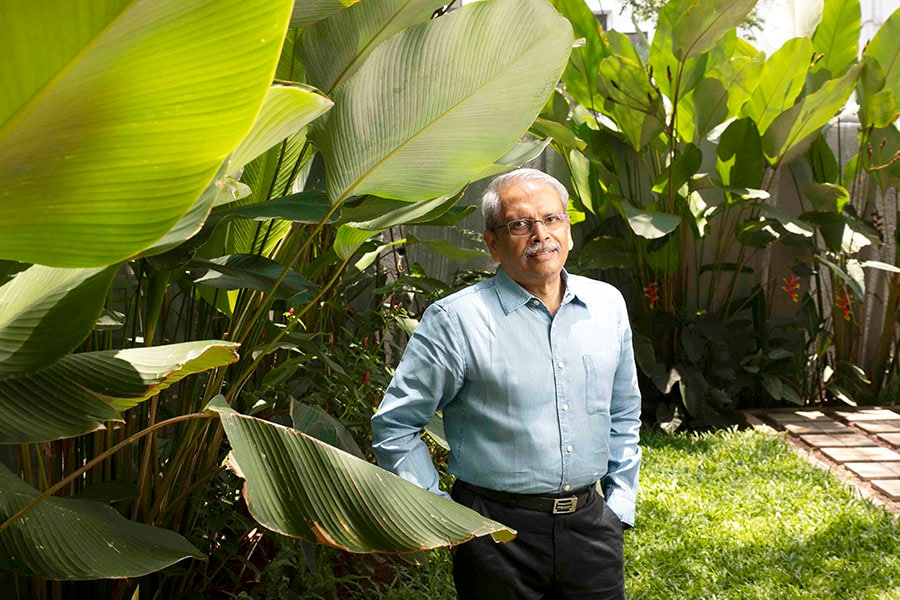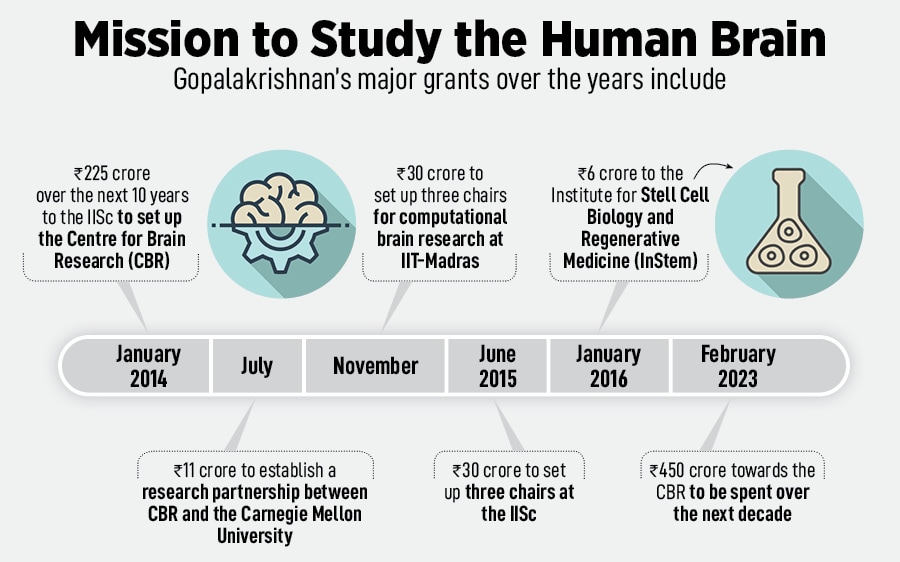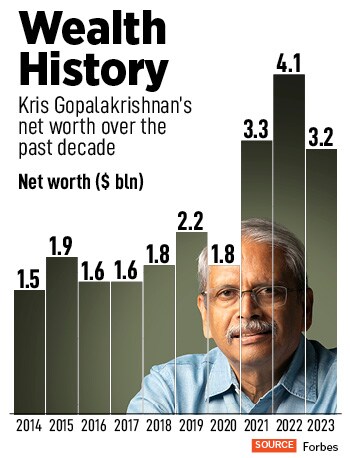
I regret not doing philanthropy earlier: Kris Gopalakrishnan
Infosys co-founder Kris Gopalakrishnan on why he chose to focus his philanthropic giving on brain research despite the chance that it may not yield the desired solutions, and the virtues of slow, patient capital
 Kris Gopalakrishnan, Co-founders, Infosys
Image: Selvaprakash Lakshmanan for Forbes India
Kris Gopalakrishnan, Co-founders, Infosys
Image: Selvaprakash Lakshmanan for Forbes India
Senapathy “Kris” Gopalakrishnan is spending hundreds of crores to study the human brain. He has earmarked Rs750 crore towards research over the next decade, through the Centre for Brain Research at the Indian Institute of Science (IISc) and the Centre for Computational Brain Research at IIT-Madras. The latter is undertaking cellular-level image mapping of the brain, which is the first of its kind in the world.
Currently, India spends less than 1 percent of its GDP [gross domestic product] on research. If this has to be taken up to 3 percent, about half of it must come from private sources, including philanthropy, Gopalakrishnan believes. “India can and must do world-class research, must contribute to solving problems facing not just the country but also the world. When India contributes to the solution, since we are a lower-cost economy, we can create the solution at a lower cost. So, the entire world benefits from that,” he says. According to him, investment in research is essential for India to become a developed “IP-led economy”.
In an interview over Zoom with Forbes India, the Infosys co-founders speaks about why he decided to make a philanthropic bet of this scale in an area that’s niche and underfunded, whether he considers it ‘high risk’, since the impact of this philanthropy is not immediate, and will take many years for fruition, and why he believes the first generation of IT entrepreneurs in India have shown the way for others. Edited excerpts:
Q. Why did you decide to focus on brain research for your philanthropy?
The focus of the philanthropy is to support world-class research in India. I strongly believe that India can and must do world-class research, must contribute to solving problems facing not just the country but also the world. When India contributes to the solution, since we are a lower-cost economy, we can create the solution at a lower cost. So, the entire world benefits from that. Our talent is as good as talent anywhere else. The learning for me is that we have to set very clear direction, focus, goals, mission-mode. Then, we are able to deliver. The ISRO [Indian Space Research Organisation] is a good example of that. When they are given a mission, they are able to deliver on that.










